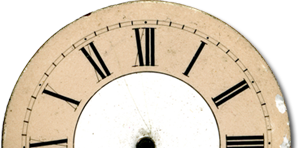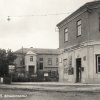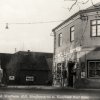"Aryanization"
"Some people are still not clear on the importance of the Jewish question. Many still express themselves to the Jewish merchant; Some stealthily, others openly. Note: Anyone who gets involved with Jews in the Hitler State will shortly or long have to face the sharpest measures of the NSDAP! This is popular treason, and quarreling is a pillory!" St. Pöltner Zeitung, 30, 21.7.1938
Just a few days after the "Anschluss" the official boycott of the Jewish shops began. On behalf of the NSDAP, the city set up a list of all Jewish businesses and businesses in September 1938. Already in January 1939 there were no Jewish tradesmen in St. Pölten.
Of the roughly 85 shops in Jewish possession, the unprofitable business had been erased and the roughly forty arrears had been "arised". The Jewish owners were deprived of their livelihood.
The purchase price for the properties came about by "free" agreement. However, under the pressure of the conditions, the Jewish owner was inevitably satisfied with every price. After deduction of taxes, for example, the "expiatory power" for the damages of the November pogroms, and the so-called "Reichsfluchtsteuer", almost nothing remained of the proceeds. If a Jew had already fled or deported, his fortune was confiscated, he himself was expropriated and expropriated in favor of the German Reich.
All the Jews of the Reich had to offer jewelery and valuables for sale until February 1939. In St. Pölten the Dorotheum was the delivery point, the Kreiswirtschaftsamt carried out the transactions. The proceeds came from lock accounts, which in the case of the deportation of their owners were transferred to the heirs only from the 1990s onwards. For some St. Pöltner Jews such accounts were also created. Insurance policies fell into the hands of the empire; here, too, compensations were made only in the 1990s.
Because of the exact records of the NS authorities, every "Ariseur", whether public or private, is record-writing. Affected persons can look into the documents at the Institute for Jewish History of Austria.
The „Referat für Fürsorge und Auswanderung“ (Unit for welfare and emigration)
Most of the Jewish St. Pöltner lost his livelihood. In order to help the people who were in need, the synagogue set up the "Department for Care and Emigration", which gave the emigrants the necessary confirmations and tried to support them financially. The speaker was Hermann Schwarz. For the "Relief Action 1938", 29 Jews donated, although even in precarious financial circumstances, amounts between two and thirty Reichsmarks. These amounts were made available to the IKG monthly or once, depending on the financial strength of the donors, in the general emergency a special achievement. The welfare committee also received grants from the IKG Vienna.
The carton 3 of the Stadtarchiv St. Pölten contains about fifty requests for support. Most of the impoverished Jews did not pay the money for the flight and were subsequently deported and murdered. Some, like Franz Mandl, succeeded in escaping to freedom with the amount granted.


